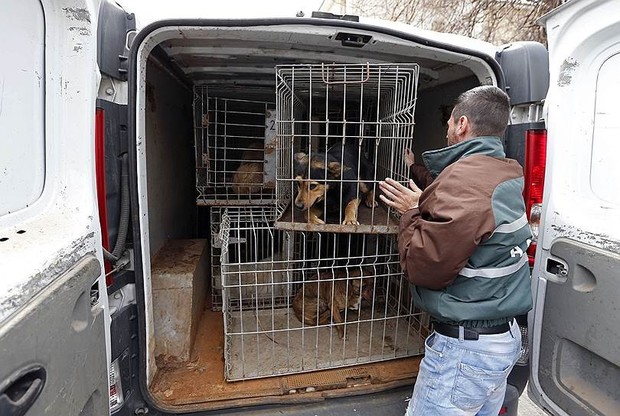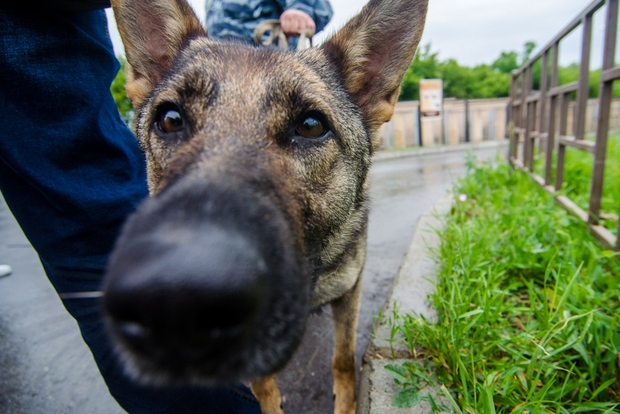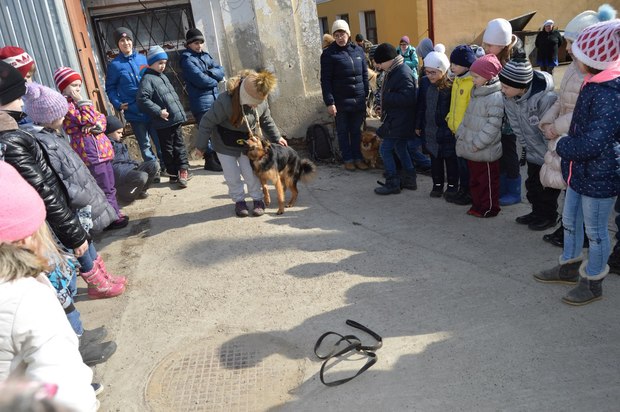''There are no dangerous breeds. It is possible to attribute Chihuahua to dangerous ones as well''
Animal rights activists and detector dog handlers tell about the idea to put on all ‘’dangerous’’ dogs muzzles and about the pros and cons of the draft law ‘’On responsible treatment of animals’’
The draft law ''On responsible treatment of animals'', which aims to protect animals and to regulate, for example, the control of stray dogs and cats, will be considered in June in the State Duma in the second reading. The draft law has given rise to many disputes, including those concerning the term ''potentially dangerous dog'', to the owners of which there are separate requirements. Why this measure in reality will have no benefit, and how animal rights activists and dog handlers perceive the ''anti-fleecer'' draft bill — read in the material of Realnoe Vremya.
Through fleecing to humanism?
Six years after the first bringing up for discussion to the State Duma, they are finally preparing for the consideration in the second reading of the draft law ''On responsible treatment of animals''. On 26 May of this year, it was directed to the Ministry of Environment, where it is to be studied and a certain position to be presented. It is reported that in the lower house of the parliament the draft law will be considered in June.
In the first reading, the State Duma adopted the drafy bill back in 2011. Over six years it was added with over 300 amendments. Perhaps, the turn would reach the second reading not very soon if not for the blatant fact of animal abuse in Khabarovsk, which literally stirred the whole Russia by its cruelty. The result was the instruction of Vladimir Putin to accelerate the process of adoption of the draft bill.
In general, the draft law provides for more humane treatment of animals. It will reinforce the provisions on regulation of the number of neglected animals, the provisions on state supervision and public control in the sphere of treatment of animals and harsher punishments for fleecer. In particular, the following regulations have been established: to catch — spay — vaccinate — return. The shelters will also have to post in the network photos of an animal with the location where it was found and other information.
Another new point is the chipping of animals. In addition, the amendments provide for amendments in the administrative code of Russia: it is proposed to consolidate administrative responsibility for cruel treatment of animals and for promotion of animal cruelty, as well as for rejection to register animals that are subject to mandatory registration.

A pet can be taken away for ill-treatment
It is unclear how the final document will look like, but for now it is clear that it prohibits animal abuse, conducting fighting and the presence of people on them, and a ban on cruel killing of animals.
The amendments to the Civil code of the Russian Federation at the end of last year were announced by animal rights activists and representatives of the Public Chamber of the Russian Federation. If adopted, the animals will be recognized partially capable subjects of legal relations, and the owners — their guardians. But for today the current bill says about the possibility of removing the animal from the owner. For example, if a person maltreats or does not cure it, its ownership may be limited. The animal may be transferred to a shelter or temporary care to other people.
The essential point is the fact that the draft bill introduces the term defining the dogs as potentially dangerous to others.
In the first version of the document there was the list of dangerous dogs, which, according to Life newspaper, include the American pit bull terrier, Caucasian Shepherd Dog, South African Boerboel, Karelian Bear Dog, Anatolian Shepherd, American Staffordshire Terrier, Alabai and metises of these breeds.
However, in the current edition it is said that the list will be established by the government. Dogs that fall into the list of potentially dangerous will not be allowed to take on the street without a leash and muzzle. Dog walking rules of non-dangerous breeds will be determined by the subjects. At the moment, according to Chapter 3, article 15 of the Federal law ''On responsible treatment of animals'' it is permitted to walk without a leash and muzzle only to decorative dogs and puppies up to three months.
In general, for all animals voluntary registration is provided. In the case of threat, it will be mandatory. Dog walking is also regulated by the draft law. The faeces are to be removed after them, the animal must be attached with the contact info of the owner.

Good draft bill with a lot of open questions
It is unclear yet whether the adoption of this bill will have a positive or negative effect.
''We do not know yet what will be written in the end. The amendments of the government themselves are good — not perfect, of course, and maybe there's something we need to correct, but, anyway, it provides for treatment of stray animals, the spheres of competence of the federation and subjects,'' says animal rights activist Evelina Skripochkina.
According to her, the positive aspect is the fact that the bill performs the function of a roadmap. That is, people are given the opportunity to prepare for changes such as registration of their pets.
An animal rights activist Darya Kashina notes that the initiative of the registration and chipping of animals is useful. According to her, in that case the animal control service will have less room for arbitrariness. We will remind that we are talking about periodically appearing complaints of dog owners who tell that their pets are being poisoned or taken to unknown places.
As for the requirement to take the recognized dangerous dogs in a muzzle and on a leash, according to Kashina, it is better to take all kinds of dogs on a leash not only for the safety of others, but also for the safety of the animal itself.
But if there are — although we have little — specially equipped or unequipped paddocks – here they can be without them. If we want respectful attitude towards animals and animal rights activists, we should treat these things frankly,'' believes the animal rights activist.

Training as an alternative to the muzzle
The preparation process of the draft bill has triggered much controversy, only a small part of which relates to the introduced term of potentially dangerous dogs.
Evelina Skripochkina reminded that the previous person responsible for the elaboration of this bill, current Minister of Culture of Russia Vladimir Medinsky, referred to the conclusion of experts on inappropriateness of distinguishing the category of dangerous animals since any animal can be dangerous with inadequate owner.
''It will be a non-working article. Who will establish to what breed the dog belongs?'' asks the animal rights defender. In her opinion, this provision is redundant.
The interlocutor of the edition notes that, on the one hand, the law involves the protection of dogs, but on the other, they are offered to wear muzzles. Dogs' thermoregulation occurs through the mouth, and in hot weather a muzzle on a dog can be qualified as cruelty to animals.
''There are no dangerous breeds. It all depends on breeding, training and upbringing. Chihuahua can also be attributed to dangerous ones, and how many staff works as lifeguards!'' professional instructor-trainer in the Volga kennel club Bure Basar, the owner of the kennel Zubastik Lily Leonov supported the Evelina's view. Besides, who will be in charge to define dangerous breeds, and especially mestizos is unclear.''
The interlocutor of the edition considers that before to make amendments in the bill regarding the so-called potentially dangerous dogs, we should first bring order in the sphere of animal upbringing. According to her, first one should not put muzzles on but to train all the dogs, which will help to raise an animal and to minimize the risks.
''In the Soviet times, dogs bit too, but went to mandatory training. I remember when I took my first dog, we were required to sign a clause according to which the club has the right to take away the dog if we do not perform zootechnical and training activities that are prescribed. But now there is no control,'' said the instructor-trainer.
At the same time, in the whole Kazan there are only two sites for training dogs and, according to the specialist, they are in a high demand. Liliya Leonova with his colleagues organise for citizens demonstration performances of dogs, simultaneously promoting a love for these animals and explaining that people should not be afraid of them.
''It is necessary to raise the culture of communication with the animal. But in our country, if you go with the dog around town you always hear: ''Why the dog is without a muzzle! Put the dog in a muzzle because it can bite!'' If you put on the dog muzzle, they say: ''Oh, it's definitely evil, it has a muzzle!'' Or, the dog is without a muzzle, a mother sends her child to pat a bullmastiff weighing under 60 kg. Go on, she says, it is without a muzzle,'' the dog handler surprised at people.

Other animals remained without attention?
Evelina Skripochkina inter alia raised a very important topic. So, the Ministry of Environment in January brought out a bill relating to all animals, not only homeless, pets, circus and laboratory, but also wild and agricultural. But, in the end, the bill did not concern them.
''It turns out that, for example, cows that are thrown out of cars in Tatarstan have left without attention. The Prosecutor's office checks the compliance of occupational safety, they did not file a case of ill-treatment because there is no component elements of a crime. In veterinary terms, cows were harmed because they continue to give milk and meat is normal, but the treatment of people to cows is not condemned. If the agricultural animals were included in the law as the Ministry had originally proposed, then these people could be prosecuted for cruelty to animals,'' said the interlocutor of the edition.
As another example, she cited the case in the Altai swimming across the river elk, whom the fishermen beaten to death with oars.
''They were punished for poaching, but that helpless elk in the water could not respond, run away from them, left without attention. There is a difference — to come to an elk on land and in water when it can't respond you. The government considered that the damages and fined for poaching, but ignored the fact that it was immoral, ugly abuse of elk.''
According to her, animal advocates are raising this issue, but the government, unfortunately, is not listening to them.